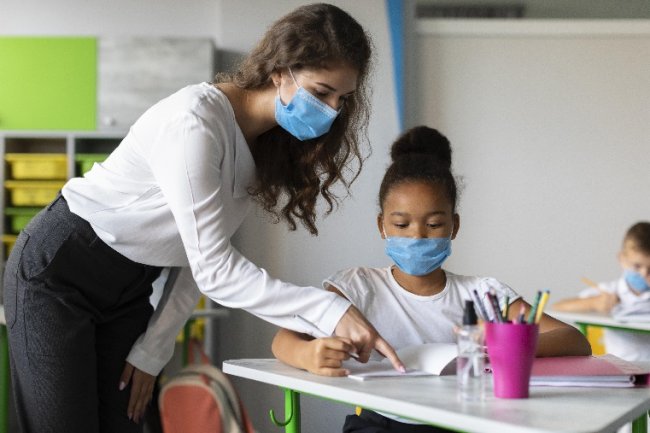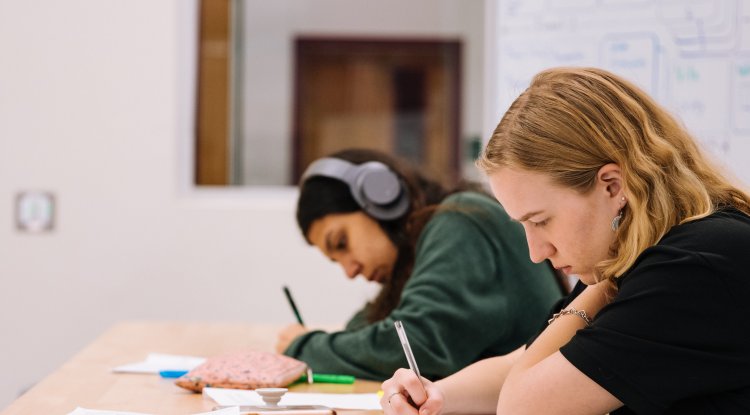Tips for Educators
9 Tips to Correct Students the Right Way in Classrooms
- Aug 26, 2022
- 0
- 2637

Young minds are impressionable and as a teacher, it's important to create a learning environment where all students feel respected. Part of the process is learning how to correct students when they make a mistake. If a student is corrected in the wrong way, it could damage their confidence or make them resentful. This could further affect their performance in class and their attitude towards learning. Here are nine tips to help you correct students the right way in classrooms.
1. Provide Feedback
When a student makes a mistake, it’s important to provide feedback so they know what they did wrong and how to fix it. Research has revealed formative and process-oriented feedback is more effective when compared to summative feedback, like letter grades or marks. The feedback you provide should be specific, objective and concise.
2. Share Examples
If a student is having trouble understanding a concept, share an example of what you are trying to explain. This will help them to better understand the material and how it can be applied in real-world scenarios.
3. Use Visual Cues or Models
Learning aids such as charts, graphs or diagrams can be helpful for students who are visual learners. 65% of the population are visual learners according to a research study. Additionally, studies have demonstrated the brain can process images and videos 60,000 times faster compared to text. Visual cues or models can improve retention and learning outcomes.
4. Allow Time for Reflection
John Dewey, an American philosopher, psychologist, professor and educational reformer introduced the concept of “reflective thinking”. According to Dewey, reflective thinking is a process of active, persistent and careful consideration of one’s thinking and learning. It’s important to allow time for students to reflect on their mistakes so they can learn from them.
5. Stay Positive
Words Can Change Your Brain a book by Mark Waldman and Andrew Newberg, M.D. talks about how positive words can impact children. The authors write, “Positive words can alter the expression of genes, strengthening areas in our frontal lobes and promoting the brain’s cognitive functioning.” In your classroom, using positive words and phrases while correcting a child will make a difference and create an atmosphere of positivity leading to better behaviour and class participation.

6. Encourage Learning From Past Mistakes
Learning from past mistakes is a valuable life lesson. As a teacher, you must encourage students to learn from their mistakes by asking them what they could have done differently. This will help children become more resilient and adaptable. You must also praise the effort students put into trying to improve.
7. Try Group Correction
Instead of calling out an individual in front of the class try using group correction. Make a note of the mistake and address it with the class as a whole at the end of the lesson. This will ensure no child feels singled out or embarrassed.
8. Pair Students
Think-Pair-Share is an instructional strategy which allows students to process information and think critically about a topic before discussing it with a partner. This strategy can be used when correcting students. After you have provided feedback, pair students and allow them to discuss the mistake and how they can avoid making it in the future.
9. End The Stigma of Making Mistakes
Make it a point to normalise mistakes in your classroom. Present them as an opportunity for learning and growth. This will help to reduce the stigma associated with making mistakes and encourage students to take risks and experiment.
When correcting students, it’s important to be mindful of the way you provide feedback. The goal is to help them learn from their mistakes so they can become better learners. By following these nine tips, you can ensure your students are corrected in a respectful and helpful way and foster a positive learning environment.
Add Comment
Related Blogs

Tips for Educators
2022 Edition - The Only Guide To Competency Based Learning You’ll Ever...
- James Coop...
- Apr 18, 2022
- 0
- 1904

Tips for Educators
Four Ways to Create a Student-Centered Learning Environment
- Mounika Sh...
- Sep 9, 2022
- 0
- 1686
Popular Blogs

Tips for Educators
3 Tips To Apply Classical Conditioning In Classrooms
- Natasha Di...
- Apr 25, 2022
- 0
- 21924

Understanding Concepts
4 Reasons Why Skill-Based Learning Is Important For Students
- James Coop...
- Mar 14, 2022
- 0
- 11249

For Parents
Everything You Need To Know About STEAM Education As A Parent
- James Coop...
- Mar 1, 2022
- 0
- 11174











